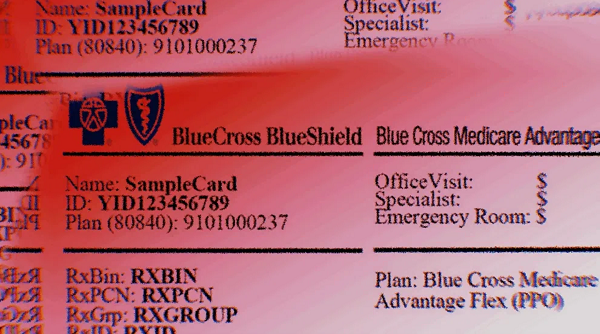Insurers Are Gaming Medicare — To The Tune Of $140 Billion
By Matthew Cunningham-Cook and Lucy Dean Stockton
Published October 4, 2023
 The federal government is losing as much as $140 billion per year by subsidizing private Medicare Advantage plans, according to a bombshell new report. In the groundbreaking investigation, health care researchers identified the four major ways that private insurers systematically exploit the taxpayer-funded national health insurance program while denying care to the nation’s most vulnerable patients.
The federal government is losing as much as $140 billion per year by subsidizing private Medicare Advantage plans, according to a bombshell new report. In the groundbreaking investigation, health care researchers identified the four major ways that private insurers systematically exploit the taxpayer-funded national health insurance program while denying care to the nation’s most vulnerable patients.
The researchers additionally found that seniors could save over $1,800 in annual fees taken from their Social Security checks if the government redirected what it spends subsidizing Medicare Advantage plans to instead reduce premium costs. Under the current arrangement, “traditional” Medicare pays about $12,000 a year to private Medicare Advantage insurers for every patient whose care they “manage.”
Medicare Advantage insurers — which include UnitedHealth Group, Humana, Cigna, and Blue Cross Blue Shield — are profiting at the expense of ordinary seniors, 40 percent of whom are completely dependent on their Social Security benefits, which average about $1,600 per month after Medicare premiums are taken out.
“Insurers are quietly plundering the Medicare trust fund for their own profits and compromising the health of senior citizens and [people with] disabilities,” said Ed Weisbart, a family medicine physician who is the secretary of Physicians for a National Healthcare Program (PNHP), a single-payer advocacy group that produced the report.
Medicare, the public health insurance for seniors and people with disabilities, is one of the most popular and effective social programs in the country. The program is funded by taxpayer money and keeps costs low by setting fixed prices with health care providers.
Medicare Advantage lets private insurance plans step in as a middle man. When the program was established in its current form in 2003, its proponents argued it would help save the government money on Medicare spending. However, research from the Medicare Payment Advisory Commission (MedPAC), an independent agency that advises Congress on Medicare, shows that the program has not yielded savings in the two decades since it was established.
Medicare Advantage plans receive a flat payment for the care they provide, strongly incentivizing the insurers sponsoring the plans to ration care — leading to high rates of wrongful claim denials, worse health outcomes, and costly administrative headaches for providers.
These private plans have been under fire for the rate at which they deny patient care. As The Lever reported, these claims have a devastating cost to health outcomes but frequently save insurance companies money as patients forgo treatments they cannot afford.
Since then, claim denials have only increased. A report from the KFF (formerly known as the Kaiser Family Foundation), a major foundation that studies health policy issues, found that two million prior authorization requests were denied by Medicare Advantage in 2021 — significantly higher than the rates for traditional Medicare.
Since 2007, the share of beneficiaries enrolled in Medicare Advantage plans has tripled, far outpacing the growth of traditional Medicare enrollment.
Many people leave traditional Medicare for private plans, and once they do, an administrative barrier makes it difficult to return. That’s because while Medicare covers 80 percent of patients’ health care costs, the last 20 percent are usually covered by the individual or a supplementary plan called Medigap. But in most states, when someone leaves Medicare Advantage, often due to illness necessitating broader coverage networks, Medigap insurers can deny future coverage — effectively making their return to traditional Medicare impossible.
[READ FULL ARTICLE HERE]
